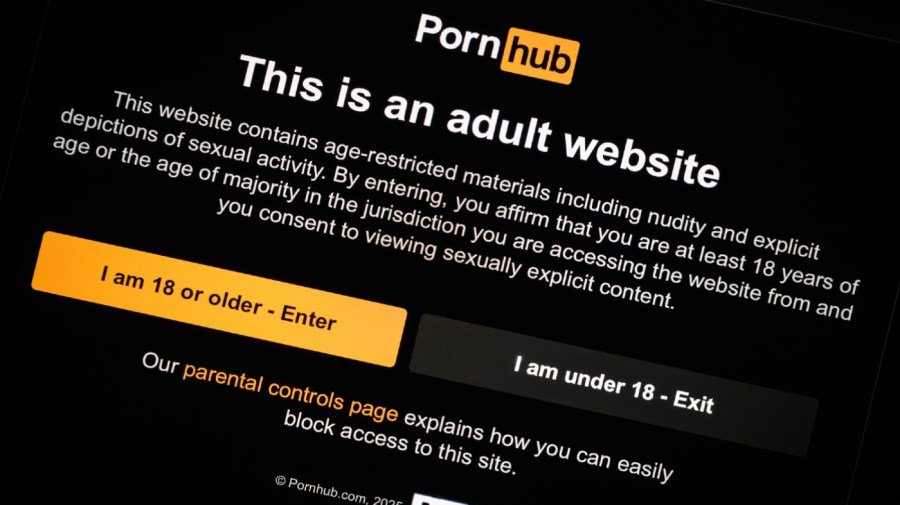In a 6-3 decision along ideological lines authored by Justice Clarence Thomas, the Supreme Court upheld a Texas law requiring porn sites to verify that users are at least 18 years old.
“The power to require age verification is within a State’s authority to prevent children from accessing sexually explicit content,” Thomas wrote in the opinion.
“The First Amendment leaves undisturbed States’ traditional power to prevent minors from accessing speech that is obscene from their perspective,” he added. “That power includes the power to require proof of age before an individual can access such speech.”
Friday’s decision could pave the way for other states’ age verification laws that restrict access to online porn; nearly 25 U.S. states have passed similar measures related to adult content, as technology increases minors’ access to it.
The Texas law, passed in 2023, also required sites to include a warning that pornography is “potentially biologically addictive” and “proven to harm human brain development, desensitizes brain reward circuits, increases conditioned responses, and weakens brain function.”
Free Speech Coalition, a trade association representing the adult entertainment industry, sued Texas Attorney General Ken Paxton (R). It argued the law violates the First Amendment by creating barriers for adults to access the websites.
During oral arguments in January, the majority of justices suggested the concept of an age-verification requirement could survive First Amendment scrutiny, while still signaling they may send the case back to the lower court to consider the Texas law under a higher standard of review.
However, the court ultimately determined the law only has to clear a lower standard of review, known as intermediate scrutiny, which it “readily survives,” Thomas wrote.
“The statute advances the State’s important interest in shielding children from sexually explicit content,” he continued.
“And, it is appropriately tailored because it permits users to verify their ages through the established methods of providing government-issued identification and sharing transactional data.”
The case brought the explosion in online porn to the country’s highest court, where justices took into account the technological shifts that have made adult content more accessible than ever.
Read more in a full report at TheHill.com.
